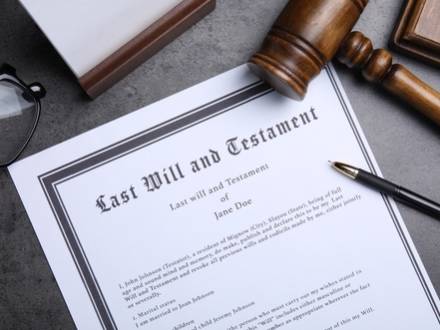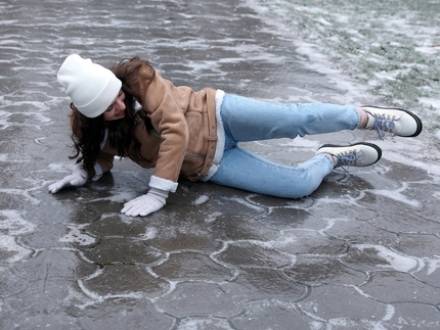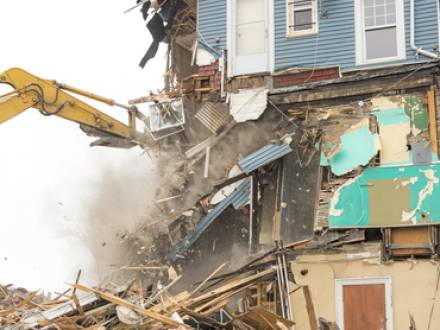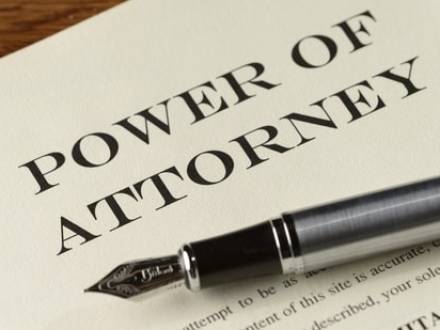Personalized Legal Services in Barrington & Schaumburg, IL
We speak English, Ukrainian and Russian languages
| Personal Injury |
Business Law |
Real Estate Law |
Wills, Trusts & Probate |
General Civil Litigation |
Elder Law |
Recent Blog Posts
Can I Get Compensation for Chemical Exposure if I Don't Learn About Its Effects Until Years Later?
 The US Department of Labor says that there are more than 190,000 illnesses and 50,000 deaths annually from chemical exposure. Many people who worked with asbestos or benzene, for example, did not know they were in danger at the time. It often takes years, even decades, before serious illnesses like cancer happen. The law in Illinois gives people a chance to seek justice even when time has passed.
The US Department of Labor says that there are more than 190,000 illnesses and 50,000 deaths annually from chemical exposure. Many people who worked with asbestos or benzene, for example, did not know they were in danger at the time. It often takes years, even decades, before serious illnesses like cancer happen. The law in Illinois gives people a chance to seek justice even when time has passed.
If you were exposed to dangerous chemicals at work or in your home years ago and are only now learning about the health effects in 2026, you may still be able to get compensation. Our Barrington, IL personal injury attorney can help you understand your rights even when symptoms appear long after exposure happened.
What Is the "Discovery Rule" in Illinois, and What Does It Have to Do with Chemical Exposure?
Illinois law has something called the "discovery rule." This rule says that the time limit for filing a lawsuit does not start until you know you were injured and that someone else caused your injury.
When Can You Challenge a Will in Illinois Probate?
 Very few things are as difficult as when someone we love dies and we believe their wishes are not genuinely reflected in their will. Sometimes this happens because your loved one confided in you. Other times, it may be because you knew them well enough that the terms of their will simply seem impossible. Whatever the reason, many people ask whether a will can be challenged and, if so, how.
Very few things are as difficult as when someone we love dies and we believe their wishes are not genuinely reflected in their will. Sometimes this happens because your loved one confided in you. Other times, it may be because you knew them well enough that the terms of their will simply seem impossible. Whatever the reason, many people ask whether a will can be challenged and, if so, how.
If you want to challenge a will or are dealing with other probate issues, our Barrington, IL probate attorneys can help. Our firm is highly experienced in solving estate planning challenges and we have served our local community for over four decades.
What Does It Mean to Challenge a Will?
Challenging a will means formally asking the probate court to declare that the will is invalid, either in whole or in part. If the court agrees, the estate may be distributed under an earlier will or, in some cases, under Illinois intestacy laws (755 ILCS 5/2-1).
When Can You Sue After Your Spouse Dies in a Car Crash?
 Losing your spouse in a car crash is devastating. Besides your personal grief, you also have to keep dealing with tough logistical issues. Bills might be piling up. You might have lost the income your spouse provided. Your children still need your support.
Losing your spouse in a car crash is devastating. Besides your personal grief, you also have to keep dealing with tough logistical issues. Bills might be piling up. You might have lost the income your spouse provided. Your children still need your support.
In the midst of this pain, you wonder if you have any legal options. Illinois law allows surviving family members to file a wrongful death lawsuit when someone else's negligence causes a death. Our Barrington fatal car accident attorneys can discuss your case with you and help you understand your options.
Who Can File a Wrongful Death Lawsuit in Illinois?
Illinois law is specific about who can bring a wrongful death claim. Under the Illinois Wrongful Death Act, 740 ILCS 180/1, only the personal representative of the deceased person's estate can file a lawsuit. This is usually the person named in the will or appointed by the court if there was no will.
How To Choose the Right Executor or Trustee for Your Illinois Estate Plan
 Selecting the right person to manage your estate is just as important as writing the plan itself. Executors and trustees handle your property, pay your debts, and protect your wishes. Picking the wrong person can lead to legal issues and family disputes. An experienced Barrington, IL estate planning lawyer will help you choose someone who can be trusted with what you leave behind.
Selecting the right person to manage your estate is just as important as writing the plan itself. Executors and trustees handle your property, pay your debts, and protect your wishes. Picking the wrong person can lead to legal issues and family disputes. An experienced Barrington, IL estate planning lawyer will help you choose someone who can be trusted with what you leave behind.
What Are the Legal Duties of an Executor or Trustee?
An executor is the person you name in your will to take care of your estate after your death. This person files the will with the court, pays bills and taxes, and gives property to the people you name in your will. They have to abide by the rules from the Illinois Probate Act of 1975, which explains how estates must be handled in court.
Can I Sue a Property Owner if I Slip on Ice in Illinois?
 As fall turns into winter in Illinois, icy walkways, parking lots, and entryways become a major hazard. Many people think a slip and fall is no big deal, but falls on ice can cause devastating injuries. A broken hip, for example, can mean surgery, months in rehab, or even permanent mobility loss. If you or a loved one suffered an ice-related fall, an experienced Barrington, IL premises liability lawyer can help you understand your rights and options.
As fall turns into winter in Illinois, icy walkways, parking lots, and entryways become a major hazard. Many people think a slip and fall is no big deal, but falls on ice can cause devastating injuries. A broken hip, for example, can mean surgery, months in rehab, or even permanent mobility loss. If you or a loved one suffered an ice-related fall, an experienced Barrington, IL premises liability lawyer can help you understand your rights and options.
What Does Illinois Law Say About Snow and Ice Removal?
Illinois property owners are not automatically responsible for everyone who falls on ice. The Illinois Snow and Ice Removal Act (745 ILCS 75/) protects property owners from liability if they make a good-faith effort to remove natural snow or ice. For example, if a business owner shovels and salts their sidewalk after a storm, they may be safe from lawsuits even if someone still slips.
Estate Planning After a Divorce
 Divorce changes nearly every aspect of your financial and personal life. Everybody knows this, yet one area many people overlook is the impact of divorce on estate planning. Once your marriage is legally dissolved, the plans you created while married probably no longer reflect your wishes. This means that reviewing and updating your estate plan after divorce is essential for protecting your assets and ensuring they are passed on to the right people while avoiding probate.
Divorce changes nearly every aspect of your financial and personal life. Everybody knows this, yet one area many people overlook is the impact of divorce on estate planning. Once your marriage is legally dissolved, the plans you created while married probably no longer reflect your wishes. This means that reviewing and updating your estate plan after divorce is essential for protecting your assets and ensuring they are passed on to the right people while avoiding probate.
If you have recently gotten divorced, it is well worth your while to discuss your estate plan with an experienced Barrington wills and trusts lawyer. We can review your current plan, help you update existing documents, and add any further estate planning tools that you need.
What if Falling Debris Near an Illinois Construction Site Injures Me?
 Construction sites are a common sight in growing suburbs like Barrington. Unfortunately, safety precautions are not always followed, and nearby pedestrians, drivers, or visitors can suffer serious injuries as a result. If you were hurt by falling debris near a construction zone, you may have the right to sue under Illinois premises liability or negligence laws.
Construction sites are a common sight in growing suburbs like Barrington. Unfortunately, safety precautions are not always followed, and nearby pedestrians, drivers, or visitors can suffer serious injuries as a result. If you were hurt by falling debris near a construction zone, you may have the right to sue under Illinois premises liability or negligence laws.
Construction site accidents often result in severe injuries to pedestrians, including traumatic brain injuries, broken bones, and spinal damage. In the most tragic cases, falling objects can lead to wrongful death. If you or a loved one has been injured, a knowledgeable Barrington personal injury lawyer can help you pursue the compensation you deserve.
What Should I Include in an Estate Plan If I Have Young Children?
 If you are a parent with young children, planning for their future means more than just saving for college or helping them explore their interests. Estate planning allows you to protect your children’s well-being in case something unexpected happens to you. Without a clear legal plan in place, important decisions may be left up to the courts.
If you are a parent with young children, planning for their future means more than just saving for college or helping them explore their interests. Estate planning allows you to protect your children’s well-being in case something unexpected happens to you. Without a clear legal plan in place, important decisions may be left up to the courts.
An experienced Barrington, IL estate planning attorney can help you create a comprehensive plan that gives you peace of mind and safeguards your children’s future.
What Estate Planning Documents Do Parents Need?
Once we understand your needs and goals, we will explain how various types of estate planning documents can benefit you and your children. However, every parent should have a will. This document allows you to name a legal guardian for your children if you pass away before they become adults. Without a named guardian, a judge will likely choose someone to raise your children. The court’s decision is based on what the judge believes is in the best interests of your children, not necessarily who you would have wanted.
Can I Sue If I Was Hurt at a Chicagoland Event?
 Summertime in Chicagoland means there are countless entertainment options to attend, including ball games, concerts, festivals, fairs, and celebrations. Whether you take your family or go with friends, there are always safety risks when thousands of people congregate.
Summertime in Chicagoland means there are countless entertainment options to attend, including ball games, concerts, festivals, fairs, and celebrations. Whether you take your family or go with friends, there are always safety risks when thousands of people congregate.
If you are hurt by someone else’s negligence or intentional actions, you may be eligible for compensation through a premises liability claim. However, finding the evidence to support your claim and collecting the highest amount available is challenging without the help of our skilled Barrington, IL personal injury lawyer.
What Kinds of Harm Can Happen at Events?
Some events have seating, while you are on your feet when attending others. Many have food and drinks available. Events may be during the day or after dark. With so many variables, there are many ways you could be injured.
Can My Power of Attorney Agent Take Advantage of Me?
 A power of attorney can have many forms. They are designed to give your chosen agent the authority to make decisions on your behalf if you become incapacitated. Many people going through the estate planning process are reluctant to give someone else that much power, wondering how far the decision-making authority extends.
A power of attorney can have many forms. They are designed to give your chosen agent the authority to make decisions on your behalf if you become incapacitated. Many people going through the estate planning process are reluctant to give someone else that much power, wondering how far the decision-making authority extends.
As Barrington estate planning attorneys with extensive experience, we may recommend designating trusted agents with powers of attorney, along with trusts, wills, and other tools, to ensure that your affairs are handled properly. We understand your concerns and will draft documents that clearly specify the agent’s scope of authority and protect your interests.
What Is a Durable Power of Attorney in Illinois?
Under the Illinois Power of Attorney Act, individuals have the right to name an agent to make certain decisions under certain circumstances. You may have multiple powers of attorney, granted to different agents for different purposes. Each can be limited and very specific or quite broad, depending on your wishes. By law, your agent is required to act in your best interests.














